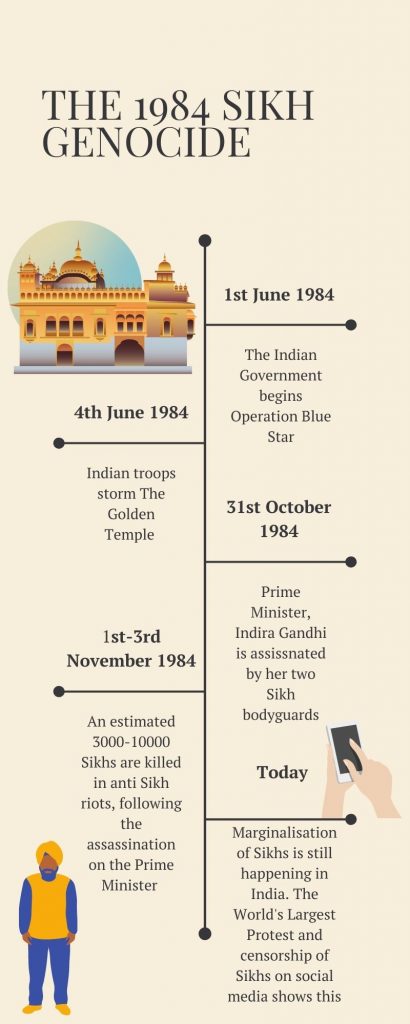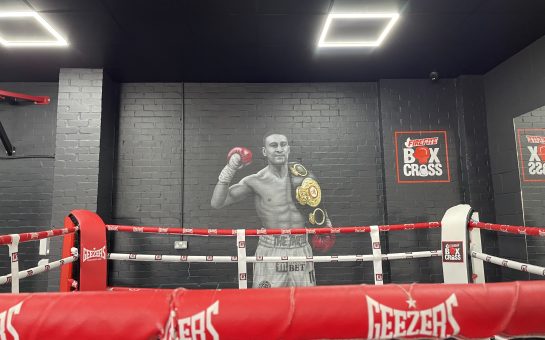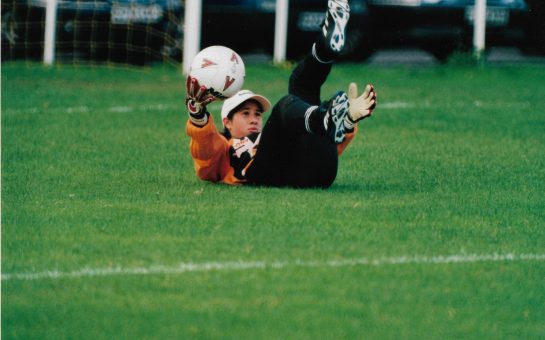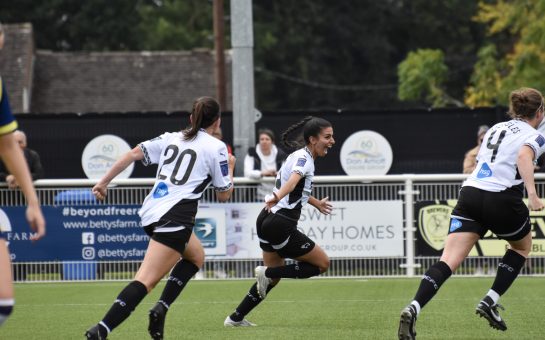This year marks the 37th anniversary of India’s genocide and documentarians are still unraveling the stories behind the tragedy today.
1984 is often referred to as ‘India’s Darkest Year’ because of the atrocities that happened 37 years ago, but the effect of 1984 is still remembered by many to this day.
The 1984 genocide is often referred to by the code name Operation Blue Star and was an Indian Military attack that resulted in the death of over 3000 people over a 3-day period.
The order for the attack was given by the Indian Government and prime minister at the time, Indira Gandhi, as a way to control Sikh groups who were demanding greater rights for Punjab and the Sikh community there.
In retaliation to the ordered attack, Indira Gandhi was assassinated by her two Sikh bodyguards which caused anti Sikh riots at The Golden Temple and the deaths of over 5000 Sikhs.
1984 is now known as one of India’s darkest periods in history.

Although the massacre happened over 30 years ago, there are still people who are still affected by that time living today.
Jag Singh, a video documentarian, recorded the hard-hitting stories of the survivors of the 1984 attack as a way to educate people about the lives behind this history.

In his series ‘Hunting Sikhs’, Jag, gives his audience an insight into how Sikhs are still affected today. His aim is to share these voices and stories so they echo across the world.
Mancunian Matters spoke to Jag Singh about his series and why he decided to start the docuseries and how he felt being behind the cameras when listening to these families speak.
Jag traveled to Punjab, India to speak to some of these survivors and create a documentary of their stories to share on social media with Your Seva UK.
Jag said: “This was a way to champion my community and get their stories out.”
There is still criticism about the marginalisation and media propaganda of the Sikh community in India today.
In 2020 the hashtag Sikh was censored across Instagram and Facebook, which significantly reduced the number of people who had access to certain posts and information surrounding 1984
In our interview, Jag spoke about the importance of marginalised communities having a platform to share their stories and his thoughts on censorship.
He said: “We have many Sikh organisations that Instagram could have contacted and said this is what’s coming up.
“There should have been open dialogue.”
To see Jag’s work and learn more about the survivors of 1984, you can watch clips from the documentaries on his Instagram page.



